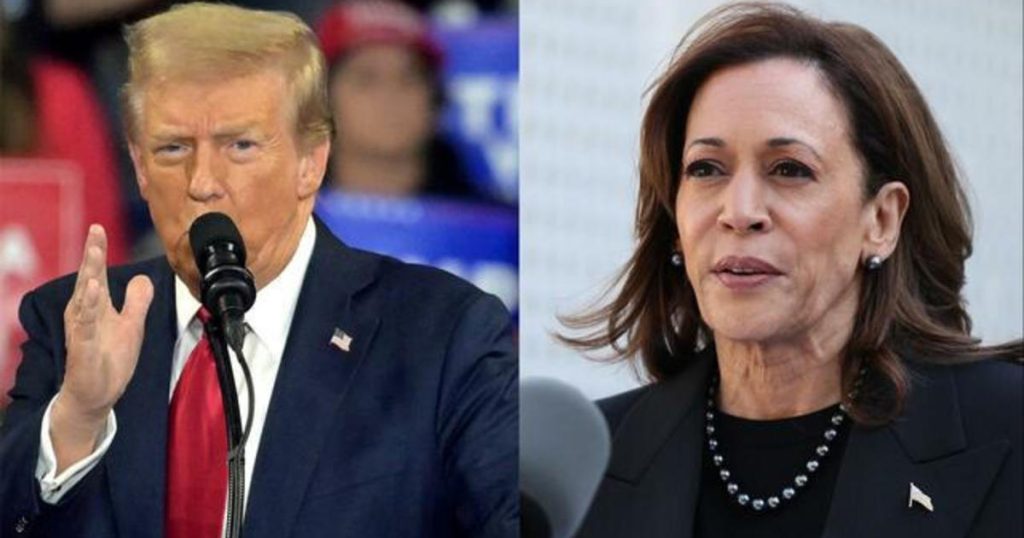In a recent CBS Weekend News segment, the focus was on the efforts of Vice President Kamala Harris and former President Donald Trump to secure support from key voting blocs. Harris has been targeting African American voters, who are considered a crucial voting group for Democrats. She has been engaging with local communities and discussing issues such as voting rights and economic opportunities. On the other hand, Trump has been working to maintain support from his base of white working-class voters, with a particular focus on rallying them against the Biden administration’s policies. Both Harris and Trump are aiming to solidify their support among these key voter demographics ahead of future elections.
In addition to political news, the segment also highlighted a massive and historic autograph book that is up for sale. The autograph book contains signatures from famous figures such as Albert Einstein, Thomas Edison, and Amelia Earhart, among others. The book is considered a valuable historical artifact and showcases the signatures of influential individuals from different fields. It is expected to attract a high level of interest from collectors and history enthusiasts due to its remarkable content and historical significance. The autograph book serves as a reminder of the impact and legacy of these iconic figures in various fields.
The segment also discussed the ongoing debate surrounding President Biden’s infrastructure bill, which has faced opposition from Republicans. The bill includes funding for various infrastructure projects such as roads, bridges, and broadband internet. However, Republicans have criticized the bill for its high cost and the inclusion of provisions unrelated to traditional infrastructure. The debate over the infrastructure bill highlights the challenges of bipartisanship in Congress and the differing priorities of Democrats and Republicans when it comes to infrastructure spending. The outcome of this debate will have significant implications for the future of infrastructure development in the United States.
Furthermore, the segment covered the latest updates on the COVID-19 pandemic, including the vaccination efforts and the impact of the Delta variant. Vaccination rates have been steadily increasing, with millions of Americans receiving their shots to protect against COVID-19. However, the emergence of the Delta variant has caused concern due to its increased transmissibility and potential to cause severe illness. Health officials are urging the public to continue following safety guidelines and get vaccinated to prevent the spread of the virus and protect vulnerable populations. The ongoing vaccination efforts are crucial in the fight against COVID-19 and will play a key role in controlling the spread of the virus.
Additionally, the segment touched on the escalating tensions between the United States and China, particularly in the context of the recent AUKUS security pact. The pact, which includes the US, UK, and Australia, aims to strengthen security cooperation in the Indo-Pacific region and has drawn criticism from China. Tensions between the two countries have been rising over issues such as trade, technology, and human rights, with both sides engaging in diplomatic sparring and military maneuvers. The situation underscores the complex and volatile nature of US-China relations and the challenges of maintaining stability and security in the region amid geopolitical tensions.
Lastly, the segment highlighted the impact of extreme weather events on communities across the country, from wildfires in California to hurricanes in the Gulf Coast. Climate change has been exacerbating the frequency and intensity of natural disasters, posing a significant threat to both lives and property. The segment emphasized the importance of addressing climate change and investing in resilience measures to mitigate the impact of extreme weather events. As communities continue to face the devastating effects of climate-related disasters, there is a growing urgency for action at the local, national, and international levels to address the underlying causes of climate change and build a more resilient future for all.


